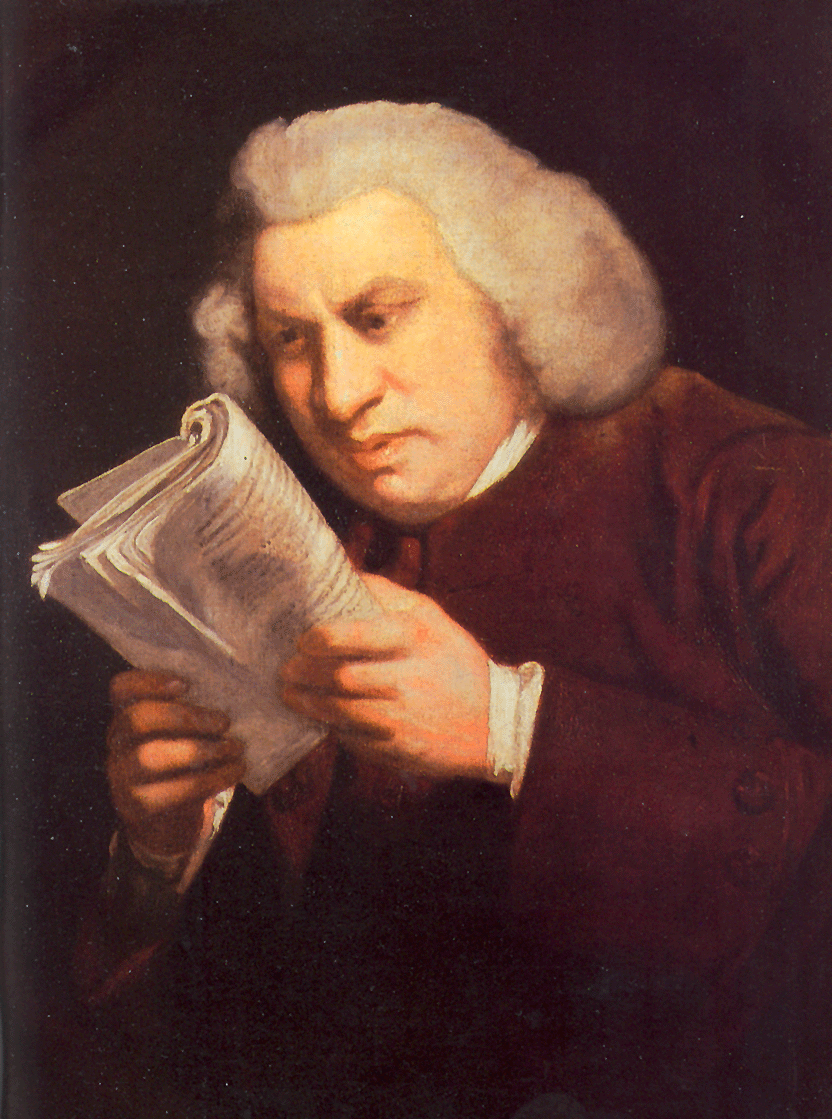 |
| Reynolds, Joshua. "A Portrait of Samuel Johnson" 3/30/2006 via wikimedia. Public Domain. |
First public speech act on Mars One: Neil deGrasse Tyson on Mars One (YouTube)
- Author/Speaker:
Neil DeGrasse Tyson: a well-known public figure in the astronomy field. He is an extremely credible person who has made many documentaries, and even hosted the reboot of Carl Sagan's "Cosmos."
- Audience:
Like most of his work, this speech was meant for people in the public. Maybe it was geared a little more toward people with a specific interest in space, but still just the general public.
- Context:
Tyson explains that maybe it is not a feasible goal. This is kind of what his job is. He tries to help the public understand the frontier of all things space-related. In this case he tries to keep the excitement down, because it is an exciting, cutting-edge prospect, but he explains that it is still just a bit ahead of its time.
Second, a Scientific American blog: Should Scientists and Engineers Resist taking Military Money?
- Author/Speaker:
John Horgan, a Fairly renowned writer for Scientific American, among other publications. Probably fairly credible, considering the number of published articles he's written. He is also the author of Cross-Check, which has "critical views of science in the news."
- Audience:
Again, mostly just the general public, slightly geared toward the scientifically-inclined, because that is the kind of person who would read articles on that site.
- Context:
Horgan is a self proclaimed peacenik, who ended u with the opportunity to take a government job for a short while. This gives him a unique perspective, because he dislikes the military, but has first hand experience with working for them. Thus he's gt some good authority on the subject. His job was a simple, anti-terrorism oriented task, so it would seem pretty harmless, even goo, because he helped fight terrorism. But at the same time, he has to consider that he helped fuel the fighting, which he didn't like.
Third, another Mars One text: Ex-Mars One candidate alleges entire project is a ridiculous scam
- Author/Speaker
Brad Reed, a news editor for BGR, and former worker for Network World, an IT website. In this case he is probably fairly credible, as he needs only to report on a statement by someone who has the original content.
- Audience:
Once again, it is directed to a fairly broad and general audience, as it's an online news article. BGR specializes in technology and consumer gadgets, but most people are interested in those things, so it doesn't really narrow down the audience much.
- Context:
A new, ambitious program, Mars One, seems too cool to be true, and,well, someone comes out saying it is; from the inside, nonetheless. Mars One is an exciting thing for many people, and for someone to come out, and maybe bring everyone back down to Earth can be a rough ride. Clearly, though, BGR thinks it's something that must be done.
Reflection:
In comparison to Mark's and Tyler's posts, I feel that mine seemed a bit thin on the analysis, but maybe good enough. I realized in reading their posts that I need to make sure that the rhetorical situation itself, and not just the content, is interesting. Of course the content being interesting can add to the complexity of the rhetoric, but there is more to it that I need to be aware of.
Also, thanks to Rose's comment on this post, I now have a far more complete version of the third article in my list, which I'll probably end up selecting:
The article is from medium.com, and is written by...
Reflection:
In comparison to Mark's and Tyler's posts, I feel that mine seemed a bit thin on the analysis, but maybe good enough. I realized in reading their posts that I need to make sure that the rhetorical situation itself, and not just the content, is interesting. Of course the content being interesting can add to the complexity of the rhetoric, but there is more to it that I need to be aware of.
Also, thanks to Rose's comment on this post, I now have a far more complete version of the third article in my list, which I'll probably end up selecting:
The article is from medium.com, and is written by...
- Author:
- Audience
Keep's audience is both the general public and media outlet sources because of the purpose of what Roche's statements were: to expose the program as something entirely less amazing than how it had been portrayed in the media so far. Additionally, they also want the general public to know that, at least in their view, it's a rip-off, and to not get their hopes too high.
- Context: this is the same as it was for the other article.



